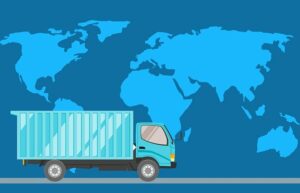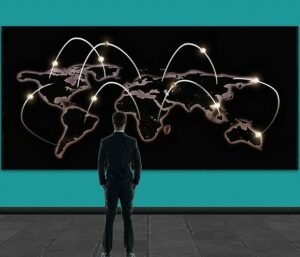The world is reliant on trade and the exchange of goods. One country has great agriculture and another is an expert at producing semiconductors. We rely on each other and trade with each other. We exchange money for goods or goods for goods and thus, we remain operational, or rather, in optimal conditions.
Take a look around you and you will see the effects of international trade. You can purchase goods produced in countries from all over the world, from guitar pedals to fruit and vegetables, to clothing products, to cars, of course. These are some of the effects of trading, particularly international trading.
The topic is broad and complex, but let us break it down into digestible pieces.
How International Trade Works
In the simplest possible way, international trade is trade between two or more countries. It is an exchange of goods. It could be a small or large deal, but countries often trade with one another. One purchases natural gas, used for heating and cooking and sells agricultural products such as grain. Trade is dependent on political situations in the world. When things change in one country, particularly if they are drastic changes, everything gets affected. Politics play a huge role in these changes.
International Trade in Detail

The two most important terms that have to do with any trade, international or otherwise are import and export.
Exports are products which a country can produce in abundance and can sell to outside countries. Imports are products that a country cannot successfully produce, and it is financially better for it to import them from another country.
Some countries are better at efficiently producing some goods over another, which is known as specialization. China specializes in cheap labor, while Taiwan is known for making semiconductors. Brazil is known for its coffee and Germany for vehicles. Specializations are important for making trade deals.
Understanding Comparative Advantages

In trading, a comparative advantage is when two countries realize that they can each produce a certain product better than each other, and then trade them. Comparative advantages are a normal part of business practices, where one country provides one thing, like labor, while another provides the knowledge and licenses on how to make something. These types of deals have existed for a while, but have been especially common in the 20th and 21st century.
International Trading Theories
As with all the things in the world, there are always theories which strive to explain the world better. The international market is a complex one, and two theories are the most popular ones, protectionism and free trade. The first says that the market is not fair and that quotas, tariffs and subsidies should be enforced to make it fairer and better. The second says that the market will do fine on its own, with supply and demand dictating everything.
International trade has been around for centuries but in recent years, it is more frequent than ever. Markets shift and change, especially the international one and now, you should be able to understand it better.




